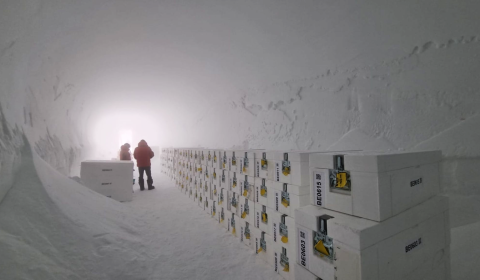Opinions may vary on how significant the role of tech should be in solving the climate crisis, but that isn’t stopping overall investment growing within the sector every year.
A decade ago, tech entrepreneurs searched for ways to emulate the likes of Zuckerberg and Bezos, filling market gaps with what they hoped would become profitable endeavours.
However, amidst our growing climate crisis, the landscape is drastically changing and start-ups are now applying tech to reduce emissions or promote sustainable living.
The connection between food sharing app Too Good To Go, green battery makers Northvolt, and circular fashion sites such as Depop is that they all strive to improve one of the Paris Agreement’s Sustainable Development Goals (SDGs).
This, employment data company Dealroom says, is how ‘climate start-ups’ are officially recognised within yearly investment reports. ‘So far we have manually classified over 7,000 start-ups using this framework,’ a spokesperson revealed.
So, exactly how much investment went into the sector in 2021, and where is the bulk of it coming from?
Industry growth in 2021
After November’s crunch talks in Glasgow, it probably won’t come as a shock to hear that investment was on the rise in 2021. Bigtime too.
The report shows a rapid growth totalling the overall outlay at $32bn. That’s nearly five times the investment of 2016 – shortly after the UN SDGs were established – and $11bn more than 2020.
‘Since the Paris Agreement, we have seen exceptional growth in the number of climate tech companies globally – those working to reduce or eliminate greenhouse gas emissions and address the impacts of climate change,’ the report says.
Of that sum, our global bid to phase out fossil fuels has seen 80% funnelled into green energy and transportation start-ups. Meanwhile, circular economy companies targeting fast fashion and food waste are also on the rise.
Among the biggest investments was electric vehicle manufacturer Rivian ($2.5bn), battery recycling company Redwood Materials ($700 million), and second-hand marketplace Vinted ($275 million).
If you’ve yet to click the report, you’re probably wondering about now which regions have been the most proactive.




















